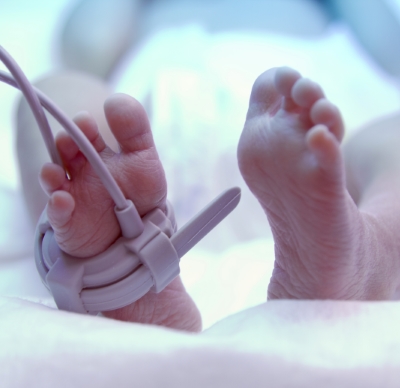Umbilical cord blood biomarkers could identify babies at risk of brain damage
'This outcome highlights the importance of having health professionals, who work within the health system, involved in research', says Darrin Morrissey, Chief Executive at the HRB.
2 min read - 7 Jan 2019

HRB-funded research at the INFANT Centre in University College Cork (UCC) has identified two blood biomarkers that could give early warning of babies at risk of neurological damage due to of lack of oxygen to the brain at birth.
Two small strands of genetic code, called microRNAs, have been identified and their absence in umbilical cord blood has been linked with a risk of lack of oxygen to the brain at birth. Early intervention in neonatal brain injury, in the form of cooling the brain, is critical in order to improve outcome. The baby is placed on a cooling blanket and their body temperature is maintained at 33.5-34.5 degrees centigrade for 72 hours. This reduces metabolism and inflammation in the brain and gives the brain time to recover.
‘This outcome highlights the importance of having health professionals, who work within the health system, involved in research’, says Darrin Morrissey, Chief Executive at the HRB. ‘The HRB’s support for Professor Murray through her five-year HRB Clinician Scientist Award, and subsequent awards for projects is delivering real results for these vulnerable patients’.
The HRB Clinician Scientist Award releases up to 50% of a clinician’s time to allow them to pursue their research and it backfills their time in the clinic so that there is no negative impact on heath service delivery for patients.
More details about the study are available from the press release on the INFANT Centre website and you can listen to a radio interview on Morning Ireland with the Principal Investigator, Professor Deirdre Murray, UCC.
2 min read - 7 Jan 2019



